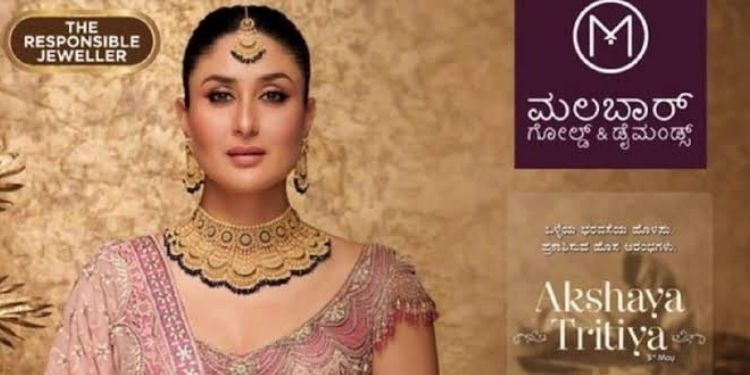Advertisements play a vital role in conveying a message to the masses. Recently, many big brands have raised controversy for their advertisements, which were meant to align with the changing times but received severe backlash from those who felt these ads maligned Indian tradition and culture.
Social media platforms has been the medium for trolls if a particular ad doesn’t convince society’s thought process. Brands create powerful ad campaigns with bold ideas but sometimes succumb to the power of comments on social media, invoking outrage and thus forcing them to withdraw these commercials.
Here are a few names who made news for wrong reasons in the recent past; Fab India-Diwali themed ad named ‘Jashn-e-Riwaaz’, Manyavar- introduced the concept of Kanyamaan instead of Kanyadaan, Tanishq- showing bridal shower (godhbharai) in a Muslim household, Fem-ad created for Karva Chauth showed love between same-sex couples, etc.
The latest brand to land in trouble this time is Malabar Gold. The ad was for the upcoming Hindu festival of Akshaya Tritiya, and people are irked that the brand ambassador, Kareena Kapoor, has been shown in the traditional attire without a bindi on her forehead. The hashtags ‘Boycott Malabar Gold’ and ‘No Bindi, No Business’ were trending on Twitter.
This raises the question of whether such brands truly deserve to be hated, and whether advertisers should be more thoughtful in their campaigns to avoid such outrages.

“It is unfortunate that there is outcry in some portions of the radical public that not adorning a bindi is somehow hurting their sentiments. It remains the creative privilege of the brand and the agency to choose how they would like to portray any ad. And it is important for a brand to stand by its ad and not be taken in by these trolls who convert everything into a religious issue,” said N Chandramouli, CEO, TRA Research.

Himanshu Arora, Co-Founder, Social Panga, pointed out, “We are living in a world of cancel culture, where social media these days is nothing but an open platform of unrestricted speech and free opinions for millions of people. Demeaning a brand or a celebrity is quite evident with recent backlashes on social media platforms that we have seen lately. ”
Malabar Gold & Diamond ad criticism over a bindi was not required at all as there were so many nitty-gritty details involved. It is difficult to predict such criticism, as brands too won’t know which ad of theirs or a piece of their creativity will be trolled and disparaged in the future. Having said that, I feel that a brand needs to take a neutral stand in such situations. Brands and celebrities are mere scapegoats, and what we see from this is that every brand communication will have a little or more rippling effect. Brands will have to be extremely cautious and mindful while creating an ad/campaign,” Arora added.

Raushn Jha, Founder & CEO, PDP Media, is of a similar opinion, “Brands need to be a little more careful when they are showing anything cultural/traditional/religious because any customisation in this can hurt people’s sentiments.”
Jha believes that sometimes brands and their creative team do things purposely to get their campaign viral overnight, but they should refrain from challenging people’s beliefs because ultimately it will harm the brand’s image, they should understand that all publicity is not good publicity, at the end of the day it’s public who makes a brand, the brand.”

Echoing observations similar to Jha, Deep Mehta, Co-Founder, DigiChefs, commented, “Keeping your customers’ sentiments in mind while releasing a brand campaign or an advertorial is going to be as important as ever. The idea is that, at the end of the day, sensitivities could be different for different individuals. While a modern-day individual may not take wearing a Bindi very casually but could take a mental disorder very seriously. Similarly, a traditional old-school person might take not wearing a Bindi extremely seriously compared to a mental disorder. At the end of the day, it’s not about which is a serious matter between the two. The idea is that my sensitivity to certain issues could be different than yours. Hence, for brands to keep all of those pointers in mind before releasing brand campaigns, especially for matters that are associated with religion or faith, is going to be extremely crucial”.
“While I understand that, as a brand, you are looking at a larger narrative or a bigger picture and you may not want to intentionally hurt anyone’s sentiments, a checklist of things that could go wrong becomes all the more crucial in the social media age today than the things that could go right. And hence, before releasing any brand campaign, a thorough understanding of how the campaign from the brand could be perceived by the target audience groups is the only way you would be able to avoid the public censorship that is prevalent in the country today, unless you are a brand that can take the heat on themselves without caring about what their customers or potential prospects think. You’ll need to abide by the sort of lines drawn by your customers, by the netizens to be able to survive as a global or mass brand,” Mehta concluded.

















